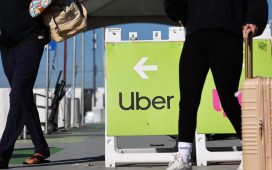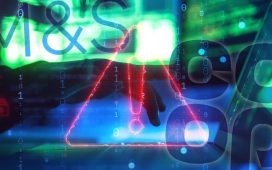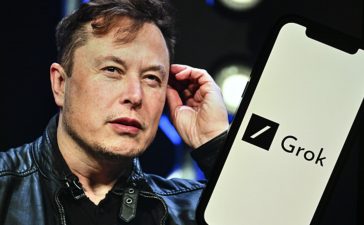A new project launched by Caltech researchers clearly demonstrates the ways in which A.I. chatbots are rapidly morphing into autonomous systems.
Somewhat ominously, these AI systems are called agents. Unlike chatbots, which, rather obviously, excel at conversing with users, these agents are multitalented.
As the researchers note, these “LLM-powered embodied lifelong learning” agents don’t just chat, they continuously explore the world, acquire an array of diverse skills, and specialize in making novel discoveries.
All of these activities can be done “without human intervention,” they add. If chatbots are one-dimensional and limited in their capabilities, agents are the very opposite.
In the near future, according to a recent New York Times report, it’s possible that these agents will become considerably more sophisticated in nature.
In fact, the report suggests that A.I. agents could “replace office workers, automating almost any white-collar job.” These agents, it seems, will remove the very idea of agency – more specifically, human agency.
Interestingly, the Times report warns white-collar workers, not blue-collar workers, to be alarmed. Which begs the question: if A.I. is coming for a whole host of white-collar professions, what, if any, blue-collar professions will remain untouched?
Unlike white-collar workers, who do most of their work in offices, blue-collar work involves both skilled and unskilled labor.
The latter refers to jobs that lack any special training or experience, such as cleaners, car park attendants, cashiers, and fast food employees. The former refers to the likes of plumbers, carpenters, and electricians, men and women who possess very specific sets of skills.
Unskilled laborers are already being replaced by technology. Right now, robots, for example, can be found flipping burgers in fast food joints across the United States, self-checkouts in supermarkets are now the norm, and parking meter attendants are quickly becoming a thing of the past.
The robots, however, have not replaced skilled laborers and tradespeople, at least not yet. Some argue that they never will, largely because electricians, carpenters and other skilled trades workers rely on the use of fine motor skills.
Joop Schippers, a Dutch academic and an expert in the future of work, tells the Daily Express US that, when it comes to discussing the rise of A.I. in the workplace, perspective is needed.
Although “robots can take over a great deal of our work, some machines and robots are cheaper to design than others,” he says.
For example, he adds, “if one looks at the jobs that have been replaced by computers already, there is a typical pattern: jobs with a repetitive nature (like in the car industry, for example), jobs which involve simple administrative tasks (counter work within banks or cash register work at the supermarket).”
“Next,” says the University of Utrecht professor, “will be train and subway drivers.” Why? Because, according to Schippers, “there is hardly any human judgment involved, and it is ‘easy’ to develop an automatic system that ‘watches’ the signals and stops at the right places if there is little interference with other traffic.”
As for those in skilled trades, Schippers believes that they are “relatively safe.” However, he stresses, “they should anticipate that A.I. and robots are also going to influence their jobs.”
How so? Although skilled trades won’t disappear, Schippers believe that they will evolve in nature. “Think of a carpenter or a bricklayer, for instance,” he says.
“Nowadays, much of their work is done at the construction site. A mason stacks brick after brick to construct a wall.” But, in the world of tomorrow, “much of this work may shift to factories where machines put a complete wall together.
That wall is brought in one piece to the construction site, and the role of the mason shifts,” he says.
“Something similar holds for window frames,” notes Schippers. “Nowadays, they come to the construction site as one piece and the carpenter’s role is to see that it is properly placed in the wall already standing there.”
When discussing the ways in which tech shapes and reshapes professions, Schipper encourages readers to think of a modern day mechanic.
Today, he says, “the first thing he or she does is to connect your car to his laptop. That is already the case for ‘traditional’ cars, but even more so for electric cars.”
“Again,” he stresses, “the job remains, but the content changes. And only if you as an individual acquire the necessary skills can you remain successful in your job.” In other words, adapt, or perish.
Which begs another question: how should the youth of today and the adults of tomorrow prepare themselves for the A.I. revolution?
“Young people,” says Schippers, “should be prepared for change.” This, he adds, is “a matter of skills and of attitude.” Finally, according to the Dutch academic, the A.I. revolution will increase the importance of lifelong learning — not just for younger readers, but for all individuals who want to remain relevant in this ever-changing environment.
The agents are coming. Brace yourself.










